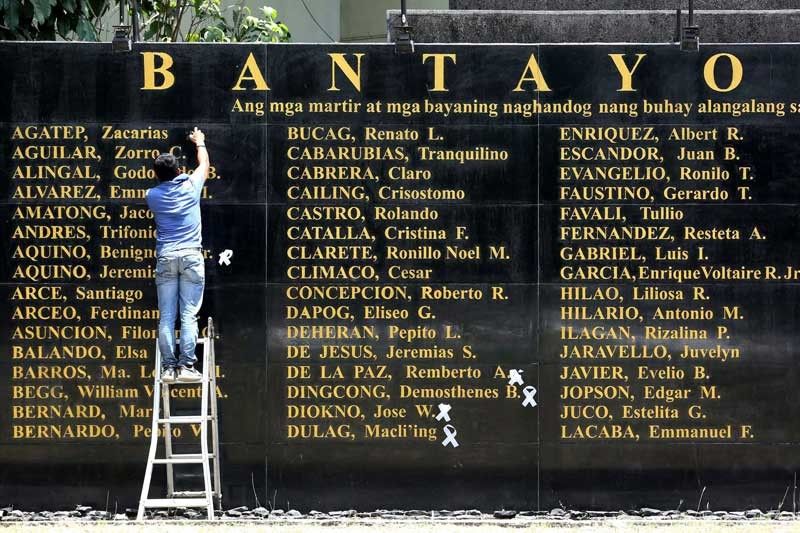US court orders payment to Marcos rights victims

MANILA, Philippines — Thousands of human rights victims during the martial law period are set to receive $1,500 each starting next month after a federal judge in New York affirmed the settlement agreement that will divide some $20 million worth of the Marcoses’ ill-gotten assets that were recovered in the United States.
American human rights lawyer Robert Swift, counsel of the martial law victims that won the $2-billion class suit filed in Hawaii, said New York district court Judge Katherine Polk Failla directed the release of $13.75 million to the human rights victims following a hearing on Tuesday.
The Philippine government, after initially engaging in negotiations, sought to stop the settlement agreement that will divide the proceeds from the sale of the paintings seized from Vilma Bautista, an aide of former first lady and Ilocos Norte Rep. Imelda Marcos.
“There was no hesitation by the judge in ordering the transfer of funds,” Swift said in a statement yesterday.
“She (Failla) was intimately involved in negotiating the settlement and knew the authority of each of the parties,” he added.
Swift said they will now focus on the distribution of $1,500 to each eligible claimant, which will begin on May 1 in Butuan followed by sequential distributions in 15 other cities until July.
“I will send eligible class members letters advising them where and when they may come to receive a check,” he said.
Out of the almost 10,000 original members of the class suit, Swift in a court filing in February said only around 6,500 may be deemed eligible based on their experience in the first two distributions in 2011 and 2014.
He noted that some of the original class members failed to submit the necessary claimant documents required by the Hawaii court, lowering the total number of eligible claimants.
Zenaida Mique, executive director of human rights group Claimants 1081 that will assist in the distribution, said preparations are underway for the distribution.
“Venues have been rented in 16 cities and staff recruited to assist in each location,” she said.
“Judging from the many e-mails and personal visits I received, class members are excited to receive compensation for the abuses committed during the Marcos regime,” she added.
Binding
Despite opposition from the government, Swift said the New York judge still directed the release of the funds after finding that the Philippine attorney in New York “had actual and apparent authority to bind the Republic to the settlement.”
He said the government will still receive its $4-million share in the agreement.
A third party, the Golden Buddha Corp. and the estate of Roger Roxas that allegedly discovered the Yamashita treasure, would also get a portion of the proceeds from the sale of some of the paintings.
In an interview in January, Reynold Munsayac, acting chairman of the Presidential Commission on Good Government (PCGG), said they received approval from Malacañang to engage in negotiations with other parties as a settlement would still benefit martial law victims.
However, after an agreement on how to divide the funds was reached, the government reversed its position and said it will pursue its claim to the entire fund through cases filed in the Sandiganbayan.
Munsayac told The STAR that they failed to secure approval of the Office of the Solicitor General (OSG), which he said is necessary for the settlement to proceed.
The OSG last week confirmed that it did not approve the agreement, saying it found the terms “grossly disadvantageous” to the government.
It said lawyers from the OSG, PCGG and the Department of Justice “unanimously” agreed not to proceed with the settlement agreement after a meeting in March.
Munsayac declined to comment on the New York judge’s decision to proceed with the release of funds to the martial law victims, saying they would still need to consult with all government agencies involved in the case.
- Latest
- Trending
































